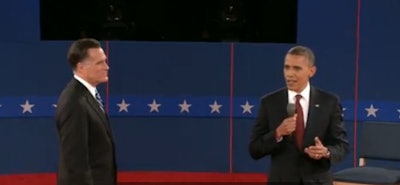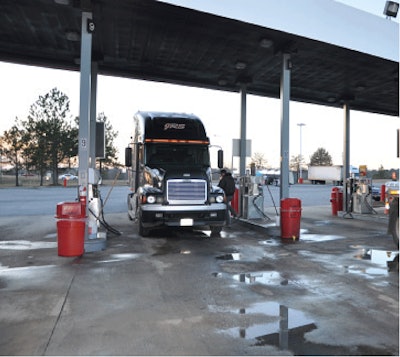

What I heard was more akin to a couple guys doing the verbal equivalent of the old shoulder shrug, hands out to the side, palms up.
Such anemic dancing around the problem is not good news for owner-operators in the here and now — fuel prices continue to plague many businesses. (Regular readers will recall that high diesel ranked No. 1 in our polling on top owner-operator business challenges; read this story and this story for more on potential solutions.)
Obama attempted an 8th-grade economics-class-level explanation of the world oil market (worldwide demand skyrocketing, putting pressures on prices at home) even as his administration’s Commodities Futures Trading Commission follows up on his own avowed concern about an excessive speculative premium in fuel prices due to the way commodities futures markets work today, a problem I’ve written about time and time and again. There’s something the government can do about fuel prices, and it went unmentioned.
There’s some recent news — perhaps hopeful, but likely not — on that score, too. New commodity market speculators’ positions limits for large traders, which some say is the answer to the problem of excessive commodities speculation, in the process of implementation have been delivered a blow by a U.S. court. The Commodity Futures Trading Commission, in the face of the blow, however, determined to press forward with their rule, scheduled for implementation quite soon.
All in all, what’s going on there sounds quite similar to the Owner-Operator Independent Drivers Association’s challenge to the limited mandate for electronic logging devices, thrown out by a judge given the Federal Motor Carrier Safety Administration’s failure to consider the issue of driver harrassment. (As you know, the regulator in that case, our friends at the FMCSA, actually upped the ante in the face of the court ruling, going after an industry-wide electronic-log mandate, with the support of Congress.) Regarding the positions-limits rule, wrote Jack Farchy and Javier Blas at FT.com, “Robert Wilkins, a U.S district judge in Washington, ruled that the CFTC had failed to heed instructions from Congress requiring it to determine that its rule was ‘necessary to diminish, eliminate or prevent’ excessive speculation,” as specified in the Dodd-Frank financial legislation.
While it’s now unclear whether this potential deterrent for excess speculation in oil markets will ever see the light of day, you can read more about the CFTC’s determination to move forward on positions limits in this FT.com story.








